There’s something about Mary Myatt that rings of a Hollywood star.
Perhaps it’s her exquisite style. She is bedecked in beautiful materials and natty jewellery. Or perhaps it’s the rebellious glint in her eye, reminiscent of Katharine Hepburn who once said, “I never lose sight of the fact that just being is fun” – a sentiment Myatt gets behind.
Or maybe, it’s deeper than that. Maybe, like many people in Hollywood, Myatt believes her glory days could end at any moment.
Myatt’s book, High Challenge, Low Threat, published last year just before her 60th birthday, has become a cult must-have among education professionals. It makes the fairly obvious case that leadership in schools is largely about relationships, but it does so by mixing anecdote and research in a way that makes fans not just read her messages, but imbibe it.
Myatt’s mystique also adds to the clamour of people wanting to hear her speak. Her sessions on the education conference circuit are packed with teachers waiting to catch a snippet of her wisdom.
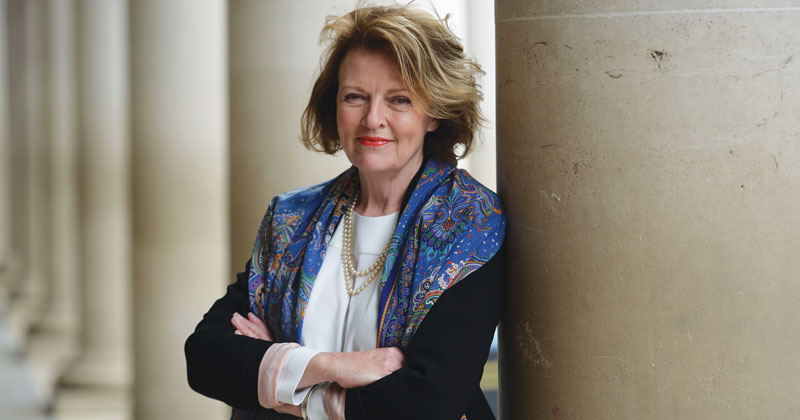
But who is she? Finding information about her online is almost impossible. There are no interviews. Her own website merely says she has spent “20 years” in schools.
“The reason you don’t know about me is because I don’t promote myself,” Myatt says, as we sip tea at the Delaunay restaurant in central London. “I promote my ideas.”
Myatt, who studied classics at Royal Holloway, believes the ideas in her books and talks are “ancient truths”, such as simplicity, honesty and kindness – truths that people recognise but sometimes need reflected back to them.
“I have also been quite careful to triangulate my views with wider literature. I am very aware that I am a statistic of one. It could just be me and my distorted view of the word. So I strip that out. I consider if an idea actually has merit, is there something to counter it, and I give it a bit of extra depth.”
Myatt didn’t start teaching until her thirties. Before that she worked in PR, which she loved, although she grimaces as she says so as her parents, who were both school leaders, felt it a bit below her. (Three of her five siblings also became teachers.)
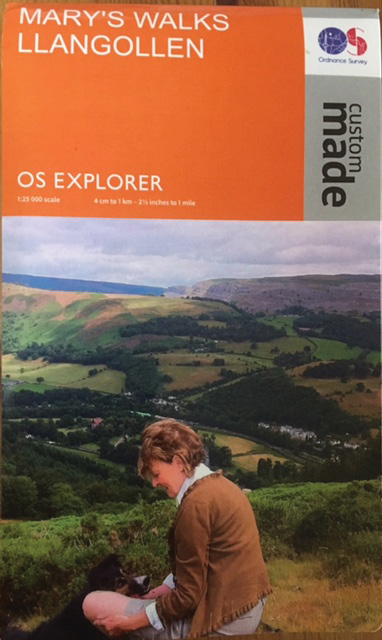
“I really enjoyed PR and marketing. I always thought it was telling the honest story of what was happening.”
She worked for department stores across London, but moved at 24 with her husband to a farm in Yorkshire and then to Suffolk. Working as an independent PR consultant she continued working after having her first child when she was 26, and the next at 28.
However, the farm in Sussex, just outside Bury St Edmunds, became embroiled in an issue with milk quotas that meant the business ended up with a glut.
Myatt looks gleeful. “So, Mary with her marketing background and two tiny children thought: I can do something with milk! So I looked at yoghurt. And I looked at cheese. And then I started an ice-cream business.”
While the figures worked for the business, the distributors fell through. So Myatt set up her own delivery van network. “I had to get up, go out and get on the roads.”
“I’ve done everything from making the bloody stuff to going to Italy to source the flavours – that was fabulous. The one that was voted top, and still is, was the chocolate – we sourced the cocoa from Holland.
I do know grief. It’s that deep sense of missing and longing
“But I do believe that you should be prepared to do things yourself if you want other people to do them too.”
After five years, and a flourishing ice-cream business that is still going today, the family sold the farm and Myatt found herself at a crossroads. She contemplated law, but decided that being a “country solicitor” would be dull.
So, at 34, she took her first classroom job teaching religious education at St Aloysius, a boys’ school in north London.
“I looked at them and they looked at me and I have no idea what they thought – probably ‘who is this mad woman?’ But I did think ‘yes, this is what I am meant to be doing’. It was the sweetest of feelings.”
She spent the next ten years teaching in Ipswich and loving it: helping students to understand that her classroom was a place of “thought, talk, and hard work that was sometimes amusing”, but which came from a place of wanting the pupils to learn, always.
She then left the classroom for a position at the local authority, but found the move wrenching.
“It was almost like grief for the first year,” she says, “and I do know grief. It’s that deep sense of missing and longing.”
At Suffolk local authority she worked on gifted and talented projects and developing RE across schools. She loved the schools work, but struggled with a culture of meetings and would refuse to attend if she couldn’t see a thread between the gathering and outcomes for children.
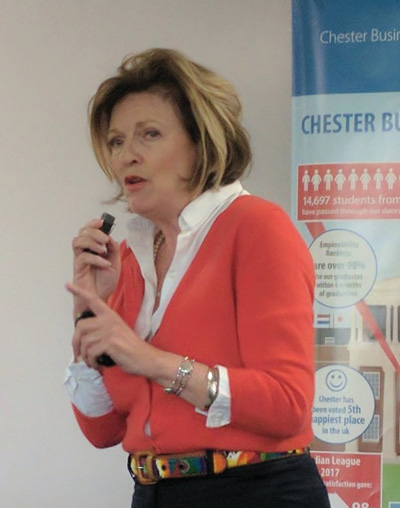
Perhaps this is because of her intense focus on time. “I am conscious of time, really conscious of time, we only have so much time on this Earth…” she says at one point.
A simple conclusion is that her attitude comes from the death of her father 30 years ago, and of her partner Raffles Hughes-Lewis, whom she met after she separated from her husband. He died eight years ago after a short illness – a devastating loss.
But she says the focus is more than that. Raised in a strict Catholic home, she always felt “life incredibly intensely” and felt it a sin to waste it. She also discovered the joy of “deep work” in her last few months at university when a boyfriend dumped her and she used learning as an escape. That boyfriend got back in touch via Facebook in recent years and the two are now walking companions. So even that relationship wasn’t wasted.
She smiles, with that rebellious glint. “As we are only here for a short while, what I would like, without being morbid, is to think that I have used everything up by the time I die.” It is clear she intends to enjoy herself as much as possible.
Her next endeavour is to create an online professional development course for teachers as she is concerned budget cuts have made training less accessible. She is also helping to set up a multi-academy trust.
And if she were in charge of education? She has three things she’d like to change: increase the focus on oracy, make the curriculum more robust, and ban the use of the phrase “ability” in favour of “attaining”.
Teaching is such an absurd job, but it is a joy
On the latter, she is particularly passionate: “All we can say on attainment is about the past. The use of ‘ability’ breaks my heart. We can’t say what someone can do in the future.”
As for the side of the curriculum wars she comes down on – traditionalist versus progressive – she is flippant. “Pfft. I’ll nick whatever works!”
What she does believe is that student voice has been lost in the past seven years or so, and that young people’s views on the curriculum should matter more. “My marketing background taught me that you don’t step out the door without knowing what the client wants. It’s not about whether a student likes me or my socks or whatever, it is about what is the quality of what is going on? They produce such interesting insights.”
She sighs. “Teaching is such an absurd job, but it is a joy to be involved in it anyway.”
One gets the sense she’d like to be involved in it forever.
It’s a personal thing
Which animal would you be?
A mayfly. It emerges from water – I’m passionate about being near water – and then gets a helicopter view, which I like. It lives for a day, sees all the things, has great sex and then dies. Imagine the intensity!
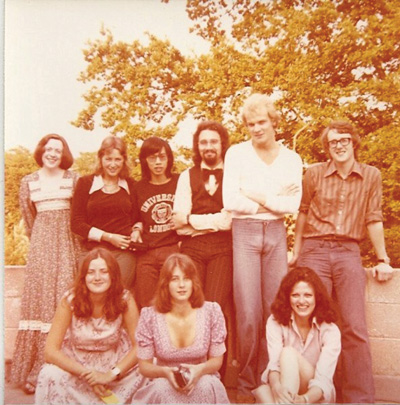
What would you do if you were invisible for a day?
Hang around the DfE. It would be interesting to see the little fragments of evidence about children’s lives that are playing into their thinking.
What do you eat for breakfast?
Porridge, with brown sugar or maple syrup, and then some weird gunk on top. Flax? Seeds? It says it’s good for you on the tin, so I throw it on.
Which achievement are you most proud of?
The results of the pupils when I was at school. Some really tricky customers thrived in my classrooms. We didn’t win them all, but when you saw those kids do well, it made a difference. I’m proud of my kids, too, if that’s not too cheesy.
Most important advice you have been given?
As a child, maybe 6 or 7, I had two amazing aunts who lived not far away and one would always say “gosh, isn’t this exciting!” and it has never left me. It’s that idea that you should be thrilled, whatever garbage is going on in the world or our personal lives, because the world is a marvellous place to be. I’ve also been given a lot of bad advice. But we won’t put that in the paper!





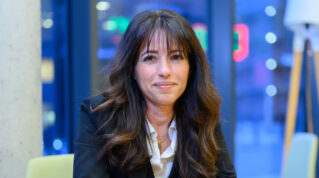

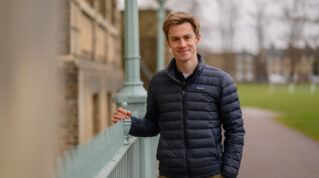

Your thoughts